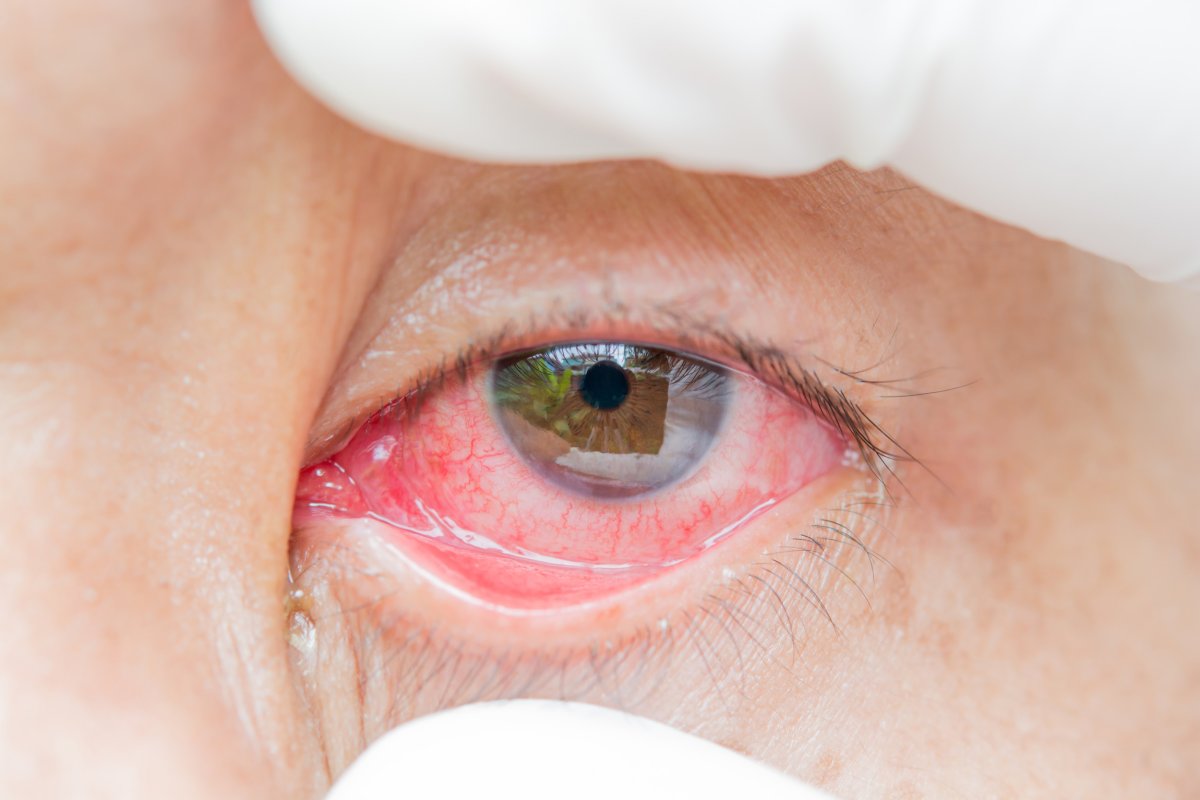Details of Pink-Eye illness outbreak that’s hitting hundreds of people in Mombasa

Residents of Mombasa are experiencing distress due to a worrisome outbreak of conjunctivitis, also known as “pink eye” or “red eye.”
Among those impacted is Fatima Idha, the mother of musician Brown Mauzo, who shared on social media about her terrifying encounter with the eye infection.
In videos posted on her social media accounts, Fatima described the severity of the condition, stating, “So I just wiped my eyes some seconds ago [but you can still see the ooze]. It is terrible; it is horrible. You feel like there is chili in your eyes.”
She further detailed the pain, noting, “My whole face is swollen; I feel like I’m swollen everywhere. I cannot open my eyes. I see blurry.”
Attempting to convey the sensation of the eye infection, she likened it to the discomfort experienced when opening her eyes underwater in the sea, describing it as a burning sensation. The infection became so severe that Fatima sought medical attention on January 22.
In an update, she revealed, “I had to go to the hospital and get some medication, and I still look and feel horrible, not only my face but I feel like my neck is also swelling. This thing is really bad; I have to go for treatment for three more days.”
What's happening? pic.twitter.com/f4faiSsz9H
— CITY DIGEST. (@city_digest) January 25, 2024
Reports from both private and public hospitals in the Coast region, including the Coast General Teaching and Referral Hospital, have confirmed the rise in cases of conjunctivitis, a highly contagious eye disease.
Mombasa County’s Public Health and Disease Prevention Chief Officer, Abdalla Daleno, acknowledged the outbreak but assured residents that efforts are underway to curb the spread of the disease.
Daleno emphasised the importance of hand hygiene in managing conjunctivitis, advising people to wash their hands frequently with soap and water for at least 20 seconds.
For situations where soap and water are not available, he recommended using hand sanitizer with at least 60% alcohol.
Daleno also urged residents to avoid touching their faces, especially their eyes, with unwashed hands and to refrain from rubbing their eyes, as this could introduce germs and irritants.
Conjunctivitis is an inflammation of the mucous membrane covering the front of the eye and eyelids, known as the conjunctiva. Infection of this membrane can lead to conjunctivitis, and is often caused by bacteria, or in the cases throughout Pakistan, viruses.
Adenovirus conjunctivitis is often spread by direct contact (eye-hand contact), but can also be spread via coughing and sneezing. Symptoms include inflamed pink eyes, eyelid swelling and itching, and the production of tears and pus from the eyes.
Infected people that have very red and teary, watery eyes will wipe their eyes and then spread the virus by touching others. Adenovirus also spreads in communities by what is called ‘fomites’ through inanimate objects: it is known to have the ability to resist desiccation or drying out and can remain alive for long periods (days) on surfaces such as door handles, counter surfaces, etc.

Conjunctivitis can also be caused by bacteria (e.g., Staphylococcus aureus, Haemophilus influenzae and others like chlamydia and gonorrhea) and by other viruses including, sometimes, the herpes viruses that causes cold sores and that associated with chickenpox and shingles. But, of these, adenovirus is by far the most contagious
Viral conjunctivitis is usually mild, going away naturally after 1 to 2 weeks, with patients being advised to stay at home to prevent the spread of the condition.
Eye doctors and general practitioners would typically manage this by advising patients to stay at home for at least 10 days following the start of symptoms to limit the spread, a bit like an individual mini-lockdown.
It is important that patients, teachers, and health practitioners manage the contagion risk by using PPE (e.g., disposable gloves); using disposable tissues and discarding them properly; washing hands carefully before and after touching the eyes; avoid sharing towels, pillowcases, and other personal items; and disinfecting surfaces with germicide sprays.










